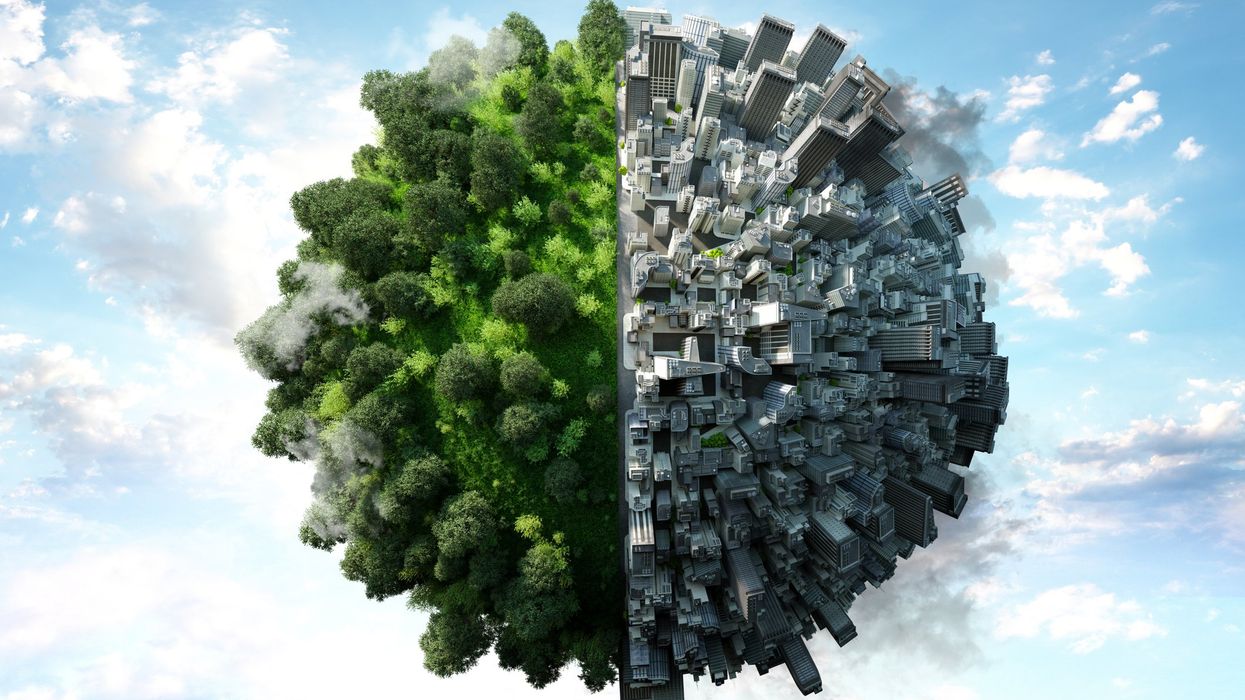Introduction
Donald Trump ran on fighting inflation. Instead, he’s helped push prices higher—and made life more expensive for everyday Americans. As climate disasters disrupt farms, raise food prices, and strain household budgets, GOP leaders are attacking the science and policies that could help us adapt. From wildfires in California to droughts in Arizona and floods in Texas, extreme weather is turning climate denial into a hidden tax on working families.
By gutting climate programs, pressuring central banks, and shielding polluters, Republicans have shifted the costs of a warming world onto the very people they claim to defend. While former and current officials point fingers elsewhere, these policies—driven by ideology and donor interests—are making the squeeze worse.
Climate change is no longer abstract. It’s the reason your grocery bill is higher, your electricity costs more, and your insurance keeps going up. It’s time to talk about who’s responsible—and who’s paying.
The Real Cost of Denial
Climate change is already raising prices. You can see it at the supermarket and in your monthly bills. Research shows that extreme weather between 2022 and 2024 pushed food costs higher across the globe.
Droughts, floods, and fires aren’t rare anymore. When crops fail in one region, prices rise everywhere. And the hits keep coming—from grocery stores to gas stations.
In 2022, a major drought in California and Arizona nearly doubled produce prices in some areas. Insurance premiums are spiking in regions at higher risk of fires or floods. Utilities are charging more as they upgrade aging systems to handle extreme weather.
At the same time, programs that could ease these burdens have been scaled back or dismantled. The Trump administration cut climate data tools, canceled resilience plans, and weakened the federal role in helping communities prepare. These weren’t oversights. They were choices.
Muting the Messengers
It’s not just about policy—it’s about hiding the problem. Under political pressure, government agencies and financial institutions have pulled back from even mentioning climate risk. That’s not cutting red tape. That’s blocking the warning signs.
The USDA quietly removed key climate data, prompting a lawsuit from farmers and environmental groups. That data helps farmers plan and avoid losses. Without it, they’re left in the dark.
At the Federal Reserve, Chair Jerome Powell responded to Republican pressure by saying climate change isn’t part of the Fed’s role—despite mounting evidence that it affects prices and credit risk.
Meanwhile, major banks like JPMorgan and Citibank have pulled back from earlier climate commitments. Fossil fuel-aligned pressure groups have targeted these institutions, making it riskier to speak out or plan.
When warnings are silenced, people can’t prepare. They don’t see what’s coming. And they’re more likely to blame the wrong things when prices rise.
From Climate Denial to Kitchen Table Crisis
Climate change doesn’t always make headlines. Sometimes, it’s just your paycheck not stretching far enough. It’s rent going up, a grocery bill that shocks you, or an energy bill that spikes during a heat wave.
Because the GOP has worked to blur the lines between cause and effect, many people don’t connect these economic pressures to climate inaction. They blame companies, utilities, or bad luck. But behind those everyday costs are policy choices that made the situation worse.
Instead of addressing climate threats, Republican leaders offer scapegoats—immigrants, urban voters, federal agencies—while protecting the industries driving the crisis. Their approach: cut clean energy funding, weaken climate standards, and end oversight.
Over time, the result is slow-motion economic strain. One disaster might not wreck your budget. But years of higher costs and poor planning will.
Who Really Pays
There’s a clear pattern behind these choices. Follow the money. For every rollback of climate protections, there’s often a donor who benefits.
Big oil, coal, and agribusiness companies spend millions lobbying to delay reform. In return, they get more freedom to pollute—and fewer questions asked.
Blocking clean energy protections helps fossil fuel profits. Ignoring climate risk helps developers. Slashing transparency keeps the public unaware. But those savings for corporations come at a cost: higher bills, riskier lives, and fewer tools for the public to push back.
This isn’t just about denial. It’s about business. And working families are left to pay for it.
Conclusion: The Heat Is Already Here
Climate change isn’t a distant threat. It’s an everyday expense. And for millions of Americans, the costs are already piling up.
This isn’t just about rising temperatures—it’s about rising bills. The GOP says it’s fighting inflation, but many of its policies are quietly fueling the very cost increases people feel in their groceries, utilities, and insurance.
Unless voters begin to connect these rising expenses to the political decisions that drive them, the cycle will repeat. Prices will keep climbing. And once again, the check will land in your lap.
The good news? These outcomes are political—and that means they can change. But only if voters look past the noise, see through the blame game, and hold leaders accountable for the real drivers of economic pain.
Robert Cropf is a professor of political science at Saint Louis University.




















Trump & Hegseth gave Mark Kelly a huge 2028 gift